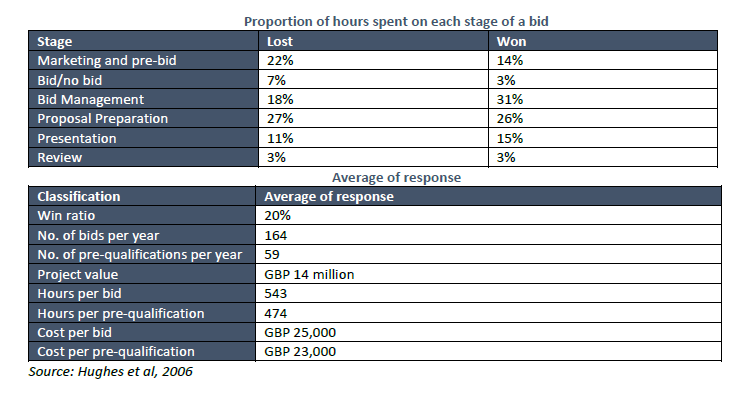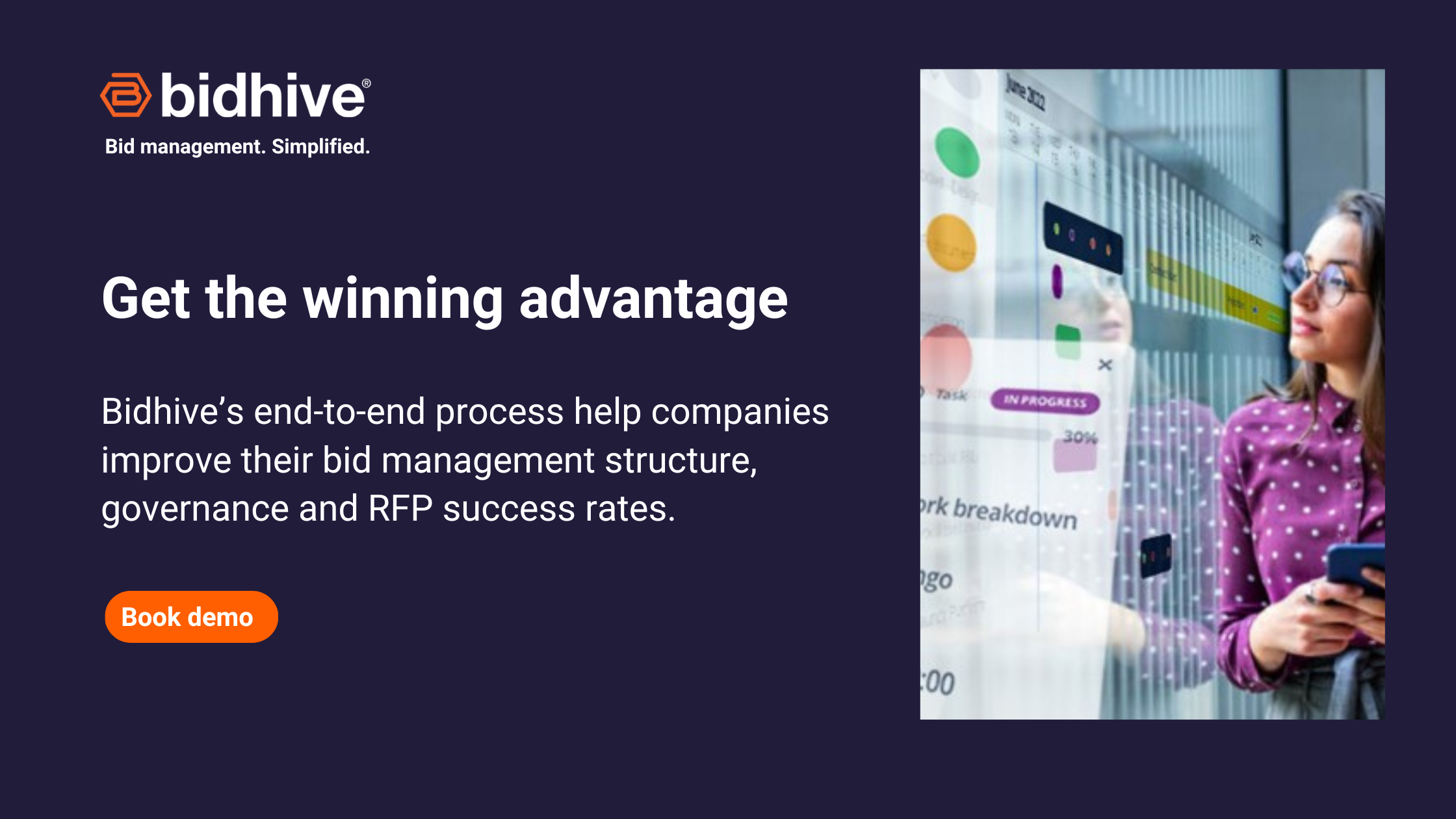The Future of Bidding: A Series on Digital Bid Management Transformation
Nyree McKenzie | Bidhive CEO & Co-Founder
Perspective #2
In our previous perspective on The Role of Technology in Modern Bid Management, we touched on the importance of digital transformation in bid management not being merely about adopting new technologies, but about instilling systematic, repeatable, and efficient work-winning behaviours across the enterprise. AI is also playing an increasingly crucial role in bid management, scrutinising vast volumes of data to generate valuable insights, anticipating the likelihood of bid success, and generating pertinent content. The landscape is changing. Fast.
As technology continues to modernise bid management processes and practices, it’s crucial for organisations to have a user-oriented view of the change. This requires a clear vision and strong leadership commitment, with expected outcomes clearly defined.
In this article let’s delve into the Discovery Phase of digital bid transformation and why it matters.
What’s the Problem Your Trying To Solve?
The Discovery Phase should not be mistaken for researching the vendor space (that comes later!!!). It is a process that involves understanding the unique needs and constraints of your own organisation and the strategic goals you want to achieve with bid management. It is a critical exercise in introspection and analysis – a time to deep dive into the current systems, processes, and behaviours that may be hindering your bid management efficiency, and ultimately success in winning or retaining business.
Underpinning this is the change aspect. After all, it’s humans who will be using the tools. That’s why the Discovery Phase is largely about understanding your users. This involves identifying their needs, their challenges, and what they want to achieve. This understanding is pivotal in ensuring that any system (or systems) you choose aligns well with the users’ needs, so listening to stakeholder perspectives is vital. You can do this via survey, or through workshops and/or focus groups.
The Discovery Phase also involves understanding the constraints your organisation might face in implementing changes to your bid process. This could include entrenched systems and systemic behaviours that could pose challenges. For instance, if your organisation has a habit of saving files to desktop drives or an over-reliance on ‘reply all’ emails (you know the type – the RE: RE: RE: RE: subject lines), these behaviours will need to be addressed and managed.

Author’s vision of the ”ultimate bidding war room”.
Set Your Objectives
The Discovery Phase also requires a clear understanding of the strategic intent behind your bid management transformation.
- What are the specific outcomes your organisation hopes to achieve?
- Are you looking to improve efficiency, increase win rates (probaby both)
- Are there retention issues with people being burned out and taking their corporate knowledge with them when they leave?
Having clear objectives will guide your choice of platform and help you measure success. Often this is difficult to pinpoint when you’re so busy working ”in the business”. If that’s the case then external research or benchmarking might help you identify some root causes or potential bottlenecks as a starting point to help you to gain perspective or clarity on how to break your problems down.
Research on Bidding Inefficiency
One piece of research I particularly like (an oldie but a goodie) is the cost study conducted by Hughes et al (2006) cited by Ziad Al-Basir (2016), which delved into bid preparation for UK contractors.
The study found that general contractors spend around 2 percent of a contract’s value to bid on an opportunity with an average 1 in 5 success rate. Likewise, they reported that small to medium enterprises spend up to 6 percent of their annual revenue to compete for a contract, with no guarantee of success and therefore creating further barriers to participation.
The research, which I believe is still relevant today, found that despite the size of the procurement market (literally, the largest marketplace in the world), it still remains one of the least digitised, functionally disjointed processes in the enterprise. Hughes’ research along with many others have highlighted that the procurement lifecycle – and all of the touchpoints of the bidding phase in particular – starting with the public notice, the Q&A period, schedules, addendum, clarification period, evaluation process, negotiation and final contract award – is sooooo disjointed that up to 30 percent of a project’s value is lost through collective process inefficiencies. Why aren’t we talking about this more????
And while there is a cost to all participants in the bidding process, the proportion of hours spent and investment on each stage of bidding, especially for those in the infrastructure and construction sector across pre-tendering (marketing, forming alliances, establishing reputations); tendering (estimating, bidding, negotiating) and post-tendering (monitoring performance, enforcement
of contractual obligations, dispute resolution etc) adds up to a substantial amount per annum. Let’s look at the survey findings below.

Sadly, these ”costs” are seldom tracked or reported on internally (you can’t manage what you can’t ”see”). But when you consider that 1 in 3 government dollars is spent on outsourcing of goods, services and works, that amounts to a significant amount of funds that could be directed to health, education and other essential services….
Analyse Your Root Cause
Like the Hughes study, you might consider doing a similar table to break down your organisation’s cost and time allocation in the bid management process. This could include stages such as pre-qualification, bid preparation, post-bid negotiation, etc. Each stage would have corresponding values for cost and time spent. For example, if bid preparation is highlighted as the most time-consuming and costly stage, this could indicate a bottleneck or inefficiency in the process.
Once you’ve identified the black hole you might delve deeper to understand where these costs are stemming from.
- Are you spending excessive time on research/information gathering, bid writing, or re-drafting/reviews?
- Is your bid team overstaffed or underqualified, leading to inefficiencies?
- Are you investing in opportunities that aren’t well-aligned with your capabilities, resulting in wasted effort and resources?
These are some of the questions that your organisation could ask to identify the specific areas of your bid process that are contributing to high costs and inefficiencies. For example, how much importance to you place on having a robust bid/no bid decision-making process? If your organisation can improve its ability to assess the probability of winning a bid before committing resources to it, you could potentially reduce the proportion of your revenue spent on unsuccessful bids.
The Hughes survey does serves as a useful example of how data can illuminate potential issues within your organisation’s bid process. By conducting a similar analysis, you are likely to identify inefficiencies, understand your root causes, and ultimately make informed decisions on how to address them.
This deep understanding will then serve as a foundation for the functional requirements for selecting a solution that will meet the changing needs of your organisation, while addressing the challenges highlighted by your stakeholders.
Summary
The Discovery Phase is a vital step in digital bid transformation. It involves understanding the unique needs and constraints of your organisation and its strategic goals for bid management, and requires a deep dive into current systems, processes, and behaviours that may be hindering your bid management efficiency. The phase also involves understanding the users and their needs and challenges, as well as organisational constraints in implementing changes to the bid process.
Setting clear objectives is a crucial part of the Discovery Phase, and external research or benchmarking can help you to gain clarity on how to break down problems. Identfiying inefficiencies can help your organisation determine necessary improvements or changes to the bid management process. This could involve implementing a bid management system that can automate time-consuming tasks, and/or a centralised place for managing bid data to improve collaboration and bid decision-making. The Discovery Phase is a vital step in the digital bid transformation journey to help guide your organisation in making the right choice in its search for a bid management solution.
References:
Albasir, Z. (2016) To bid or not to bid: A framework for contractor decision making. thesis. Available at: https://www.researchgate.net/publication/303721690.
Related reading:
Perspective #1: The Role of Technology in Modern Bid Management


